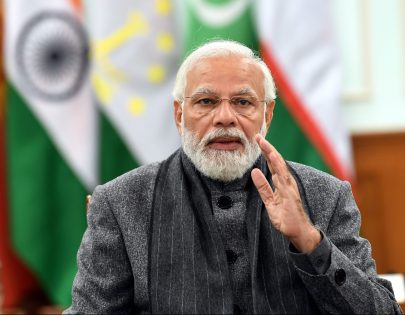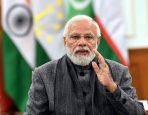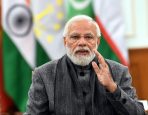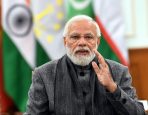
China’s plans for Xinjiang, and what it means for the region’s persecuted Uyghurs – podcast
PTI, Jan 30, 2022, 9:56 AM IST

When the Beijing Winter Olympics open on February 4, diplomats from several countries, including the US, UK, Canada, and Australia, will not be there to watch.
Their diplomatic boycott hinges on concerns about human rights abuses in China’s Xinjiang Uyghur Autonomous Region.
In this episode of The Conversation Weekly, we talk to three experts about China’s long-term vision for Xinjiang, and what its strategy there means for the region’s persecuted Uyghurs.
We also look at the toxic heavy metals are lingering in people’s homes. A researcher, who receives vacuum cleaner dust in the mail from around the world and tests it, reveals what she found.
International pressure is mounting on the Chinese government over the situation in Xinjiang.
In December, soon after news of the diplomatic Olympic boycott emerged, the unofficial, London-based Uyghur Tribunal found that the People’s Republic of China had committed genocide, crimes against humanity, and torture against Uyghurs, Kazakhs, and other minority groups in the Xinjiang region.
The tribunal is independent and its verdict has no force under international law. China dismissed its verdict and said allegations of forced labor and genocide were “vicious rumors”.
However, in the aftermath, the office of the UN High Commissioner for Human Rights said it would soon publish an assessment of the situation in the Xinjiang region.
It’s difficult for researchers to get a full picture of what’s happening today in the region.
Darren Byler, a senior lecturer in politics and international relations at Simon Fraser University in Canada, who has lived in Xinjiang and last visited in 2018, says he gets his information from news passed to members of the Uyghur diaspora by family and friends.
Byler says it appears fewer Uyghurs are now being detained by the authorities in internment camps than they were a few years ago. However, he says there’s widespread family separation, and “hundreds of thousands of people are still missing”.
Those outside the camps live under a repressive surveillance system in “sort of an open-air prison”, he says.
Several camps have been closed or abandoned, others turned into pre-trial detention centers, and others have been turned into factories.
“It does appear as though the state was maybe acting more re-actively to international pressure and wanting to close them more quickly than they were at least intending at the outset,” says Byler.
David Tobin, a lecturer in East Asian studies at the University of Sheffield in the UK, explains the long history of China’s relationship with Xinjiang and the Uyghurs.
“The underlying problem in how Xinjiang is is governed in China is the notion that Uyghurs were barbarians and became human by becoming Chinese in 1949,” says Tobin.
“And then when they start to be seen as human it’s only because they have to be integrated into China.” While this history is vital to understanding what’s happening in Xinjiang today, he says the repression against Uyghurs wasn’t inevitable.
“We could have had a different turn of events, different leaders with some different ideas,” he says.
Xinjiang’s position in northwest China gives the region added economic importance in the country’s plans to boost trade with its neighbors.
“Xinjiang sits in a strategic and pivotal location for the Belt and Road Initiative,” says Anna Hayes, a senior lecturer in politics and international relations at James Cook University in Australia.
It’s China’s gateway to the Middle East, Central Asia, and Europe, she says. “There’s a real hope that Xinjiang will be massively transformed into a hub of manufacturing and natural resource extraction,” Hayes explains, with the southern city of Kashgar as the region’s economic center of gravity.
But underlying this strategy, she warns, is a settler-colonial mindset that sees the indigenous Uyghur population as the “grunt labor force” in this economic transformation.
Udayavani is now on Telegram. Click here to join our channel and stay updated with the latest news.
Top News
Related Articles More

Who would lead if US stepped off world stage? asks Biden

Sexual harassment case: HC declines to suspend prison sentence of former TN special DGP

Watch: 2 Malaysian Navy helicopters crash mid-air; 10 onboard killed

2 Indian students killed in traffic collision in Arizona

Indian-origin married man jailed in Singapore for beating girlfriend to death
MUST WATCH
Latest Additions

PM Modi Accuses Congress of Divisive Agenda, Seeking Votes by Implementing Religious Quotas

Don’t blame Dubai’s freak rain on cloud seeding

Ex-Jharkhand CM Hemant Soren moves SC, says HC not pronouncing verdict on his plea against arrest

Elephant ‘Malti’ transferred from Amber to Vantara elephant sanctuary

Invest in disaster resilience today for safer tomorrow: PM Modi






















